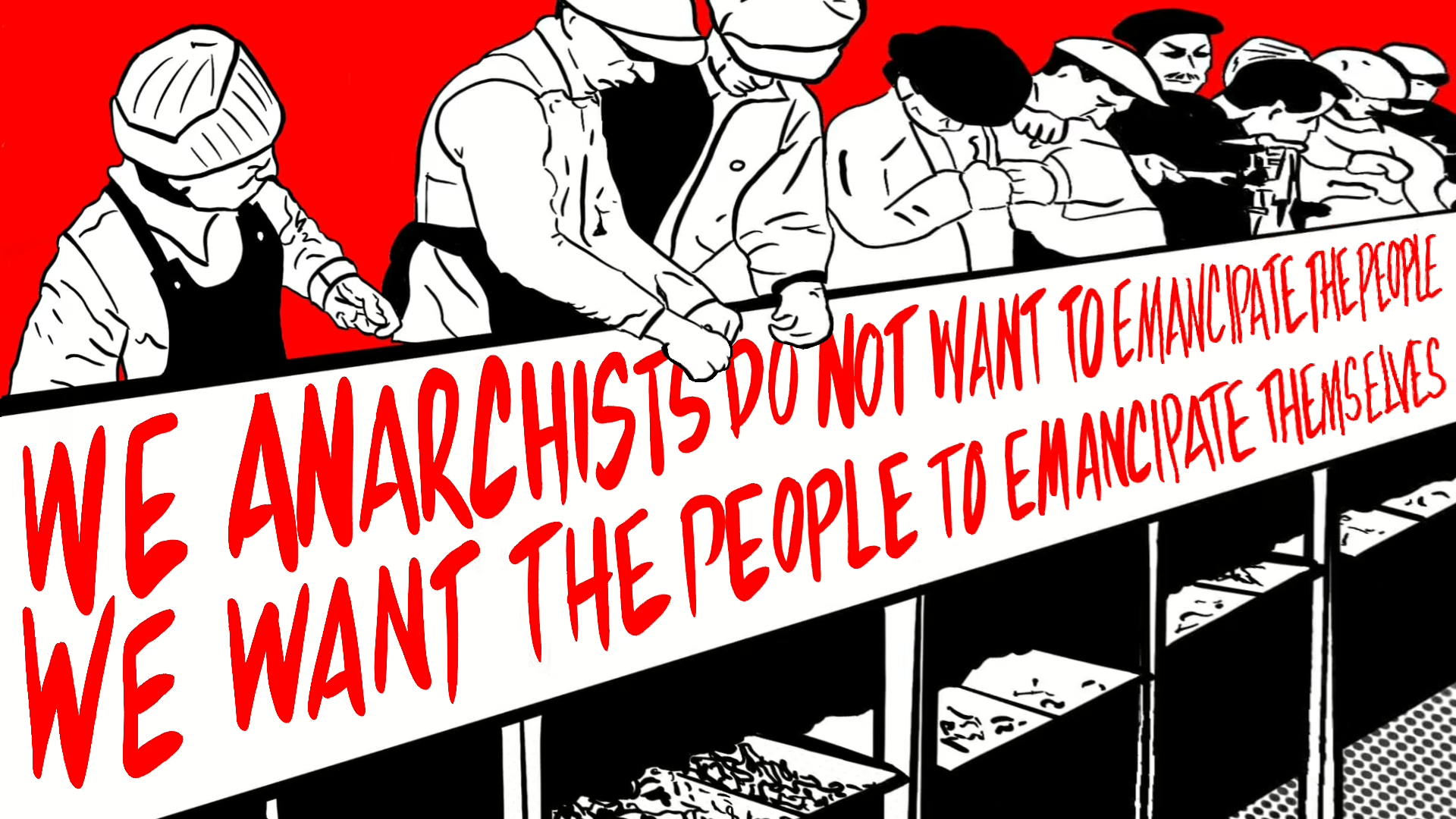Revolution is the complete transformation of how we live, work, and relate to one another.
Most revolutions are political revolutions. They reshuffle who governs us but leave the deeper structures of oppression untouched. A social revolution goes further, changing how decisions are made, resources shared, and power distributed.
A social revolution describes the working class taking collective control of production, distribution, and daily life. It’s the people who do the work now making the decisions, on the job and in their communities. It’s a world built on the principle: from each according to ability, to each according to need.
To some, this sounds utopian. But what’s truly utopian is the belief that we can vote or reform our way out of a system built on exploitation.
Capitalism isn’t broken
Capitalism is a system based on inequality, coercion, and endless growth. Its violence is both spectacular and mundane: bombs dropped in one place, starvation in another, eviction notices quietly emailed while homes sit empty.
Capitalism doesn’t need to be mismanaged to destroy lives. It cannot be made green, ethical, or just. It cannot stop the plunder of land, of labour, of the planet because it cannot function without plunder: lithium from colonised lands, labour from exhausted bodies.
Reforms aren’t enough
Every reform we’ve won, we’ve had to wrench from the hands of capital. They’re concessions, not gifts, forced through by organised, sustained working-class struggle. When that struggle fades, capital takes back everything we’ve made it concede.
That’s why we support reforms but reject reformism. The belief that this system can gradually transform into something fair is a trap. We fight for reforms not to patch up capitalism, but to build confidence, organisation, and strength within the working class, so we can confront and dismantle the system itself.
Capital won’t go quietly
The ruling class will resist anything that threatens their control with all the violence they can muster. They will abandon every democratic pretence, and unleash the full power of the state to protect their wealth. If that means shutting down parliaments, backing fascist coups, or drowning mass movements in blood, they will not hesitate.
It doesn’t always come with bullets. Capital also starves into submission through sanctions, debt traps, and economic blockades. When profit is at stake, no law, constitution, or election is sacred.
History proves this. From Chile to Indonesia to Australia, the moment a movement becomes a real threat to capital the masks come off.
In Chile, Salvador Allende tried to bring socialism through the ballot box. For that, he was met with tanks and gunfire. The CIA backed a coup, the military seized power, and thousands of workers and students were rounded up, tortured, and executed. The dreams of a “democratic” socialism were buried in mass graves.
In Indonesia, the US armed and supported General Suharto’s military as it carried out one of the 20th century’s most horrifying massacres. Over a million communists, unionists, and anyone suspected of sympathy were slaughtered to protect the interests of capital. Australian diplomats and politicians were fully aware of the scale of the violence. They praised it as a “great victory,” while providing propaganda, intelligence, and diplomatic cover to the regime.
In Australia itself, the pattern held. Even the mild reforms of the Whitlam government provoked panic. Investment dried up, the media turned hostile, and the usually ceremonial Governor-General stepped in to sack the Whitlam government.
So why revolution?
No law can abolish capitalism. No party can vote us out of climate collapse. No bureaucracy can dismantle the system that created this crisis.
We need a revolution not because we’re idealists, but because we’re realists. Poverty, imperialism, and ecological collapse aren’t bugs in the system. They are the system.
Revolution is not a single event, but a process of rupture and rebuilding. If we want a world organised around life instead of profit, it must be built from the ground up, through the collective power of the working class.
Some argue that we can do this by using the state, but the state is not neutral. Time and again, leftists who enter the state find themselves crushed, co-opted, or transformed. Even those with sincere intentions are changed by the very institutions they hoped to use. The more radicals are absorbed, the more they come to resemble what they once opposed.
Means shape ends. You cannot use class structures to build a classless society.
The path ahead is made of the choices and struggles we take up today, because the tools we use shape the world we create. It begins with the recognition that we cannot live like this, and that we don’t have to. The working class already has the power to change everything. That power only grows when we organise deliberately, collectively, and from below.

